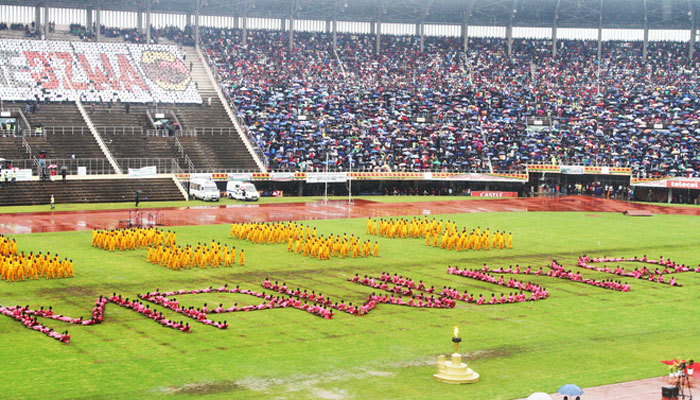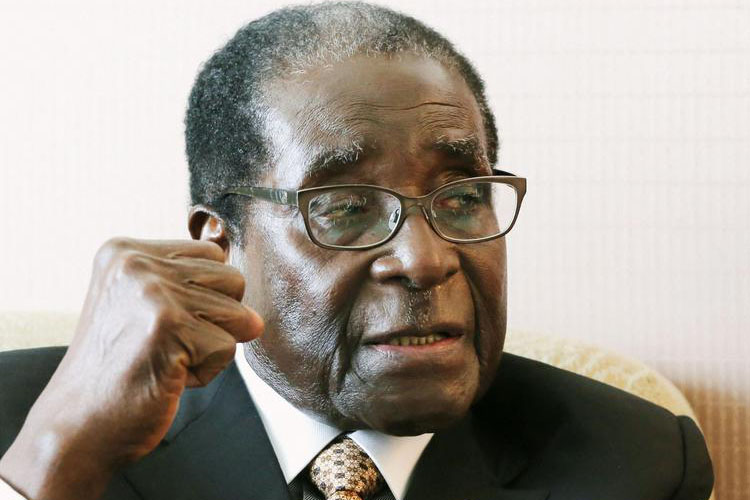
The Sunday Mail

When President Emmerson Mnangagwa said the “past is dead’ there were mixed reactions, naturally.
But a browse through the pages of history will reveal that he is not the first — and probably will not be the last — to let sleeping dogs lie. In March 1980, on the eve of independence, former president Robert Mugabe made the now immortalised “let’s beat our swords into ploughshares” speech.
Next door, as reality sank in that apartheid was no longer sustainable as a dispensation, and as Nelson Mandela sought to build a “rainbow nation”, the gospel became the same, let bygones be bygones.
Slavery and colonialism — regrettably some of the darkest moments in human history — have had enduring memories up to this day, and most of these memories have emotionally been subjugating. Even World War II has had its bad patches.
Back home, and borrowing from other economies elsewhere, we can never build a nation on sad memories, on bygones. We can never build a nation on bitterness. What we should strive to do is to learn from the past and use that to shape our future.
Rwanda being a case in point. Emerging from one of the worst genocides in human history, no-one in 1994 thought that today that country would be the model that it is today.
Which puts Wednesday’s Independence celebrations into perspective: for a whole generation this would be the first time that they will celebrate being independent without Robert Mugabe at the helm.
The former president cannot be wished away nor erased from our history books. But what cause would it be to us, as a generation and a country, to continue dwelling on what could have been? Prudence will show us to draw lessons from that past.
And there are a lot of lessons that we need to learn from the almost four decades that we have known Mugabe as leader of Zimbabwe. And here is a look at some of those areas that we need to work on:
Land
The land issue has been emotive and it is because of the land question — and how we handled it — that we find ourselves in the current situation. The first and foremost lesson from the land question is the irrevocability of what happened from 2000.
What we need to do, though, is to address some of the anomalies arising out of the manner in which we dealt with the issue. The re-distribution was without form and methodology, it was haphazard. Which means some of the farmers who were not meant to lose their farms did so.
Redressing these anomalies entails a land audit that looks at who has how many farms, which farms are productive or not and who has the capacity and potential to utilise the land. There are plenty of farmers — both black and white — who are willing to farm and who have the potential to farm, but who cannot because they don’t have the land.
Recently the President was in China and that country is a huge market for our agricultural products. And if we can but feed just one province of China then we are able to offset some of the trade challenges bedevilling our economy.
So the biggest lesson that we have to learn from the land reform is that there is need for redress. If the country needs to move forward the issue of land has to be looked at without any prejudice; racial, political or otherwise.
Once we address the land issue, we are setting the tone for the recovery of the economy, for ours is agro-based.
Economy
Right now to the common man, the economy is having his money when he or she wants it. We might talk all we want about mega-deals, foreign direct investment, re-engagement and the what-nots, but as long as the common man does not have access to their cash, we are not talking any economy.
It is not going to be a stroll in the park to have money back in our banks but it can be done. The first step, at the personal level, is to do away with the hunger for hard cash. We seem to be a nation in obsession with cash.
But the difficult recent months have taught that having cash at hand is not always the solution. Thanks to mobile money transactions and swipe machines, we have come to enjoy life without cash.
Those days when we used to withdraw one hundred US dollar bills from the ATM, something was just not adding up. A normal economy does not work like that. It has been a hard transition but kudos must go to Dr John Mangudya for not giving in to the temptation of wanting to print more money.
Instead, he has dished out more coins. Painful, but needed reality check. Even in American films, unless of course it is a robbery, one cannot see someone using a hundred-dollar bill in an everyday transaction. But that is what we were doing here, buying beer at the local bottle store with hundred US dollar bills.
Away from the issue of cash flows, the Government will need, as it has already begun, to engage the multi-lateral organisations and the international community.
Such engagements, unfortunately, do not yield results overnight. There has to be some form of patience from us, the citizenry, the electorate. Expecting overnight success, after all these years of international isolation would be to miss the ball by a mile.
Besides agriculture — which is without doubt the backbone of our economy — there is need to focus on other areas like mining, manufacturing and processing and tourism.
Tourism in its own right is an industry. And the good thing about tourism is that there is just little effort that we need to do, we just need to re-engage. Tourism is a perception-sensitive industry and once the world’s view of us changes, then the tourists will start flying in.
So far, so good. My good friend at Africa Albida Tourism, Marriane Betts, says the signs are looking good.
Right now they are on an expansion drive, such that when the numbers starting hitting the ceiling, they will be ready for the competition.
The revival of the mining, industry and manufacturing sectors hinge solely on the revival of Ziscosteel, Africa’s steel centre.
Once Zisco breathes again, the National Railways of Zimbabwe, the mover of coal from Hwange, comes back into life. So does Hwange itself. Then the other industries, notably Sables and Lancashire Steel, also have a new lease of life.
So with agriculture back on its feet, with a fairly done land audit, mining and industry turning around, Zimbabwe will never be the same again.
Then we can start talking of a local currency, which we badly need.
Health
Zimbabwe’s health record has been one of the best on the continent, if looked at holistically.
Take away the intermittent outbreaks of cholera and typhoid, the recent work stoppage by junior doctors and the drug outages in most of our hospitals, we have done fairly well under the circumstances.
On the positives, we have handled the HIV/Aids commendably better than our neighbours. In fact, our model is admired by many, especially the manner we have managed to suppress and contain the spread of the virus, thanks in large to the Aids Levy.
But there is a lot that we can do better. For example, our hospitals are in need of urgent recapitalisation. Most of them are without drugs, basic necessities. And health is a basic human right.
So as we celebrate our Independence on Wednesday, and as the Government sets and works on its priorities for the coming years, health should be at the top.
Especially the provision of drugs.
The onus is on Government to replicate the success of the HIV/Aids intervention model in the fight against cancer, the new threat to human life. Though there have been calls to introduce a Cancer Levy, which will almost burden the already overburdened worker, probably the introduction of the long-touted national health insurance policy will help in the fight against cancer.
Education
Zimbabwe’s education model remains one of the best on the continent, given that our literacy rate favourably compares with the rest of the continent.
However, there is need to safeguard the gains we have made in the education sector, especially taking care of such rots as recently happened at the Zimbabwe Schools Examinations Council. Such scandals put whatever gains had been made education into the negative.
Whilst there have been attempts to zero in on academic excellence, whose efforts and results are everywhere for everyone to see, we seem to have forgotten some of our children whose schools lie in and around the country’s borders. Or those whose parents relocated to new farming zones as a result of the land reform exercise — besides travelling unreasonable distances to school, some of them are learning in what could pass for Stone Age structures.
Legacy
As the beer flows on Wednesday and the music plays all night, in commemoration of the 38 years that we have been self-ruling, it should not be lost of, collectively, that there are thousands of souls who sacrificed their lives so that we can have this independent State.
Their hopes and aspirations should not be in vain, which puts focus on the forthcoming harmonised elections into perspective.
Just like in 1980, the July/August elections will determine where we go as a nation.
Should the gains of the past months since the resignation of former president Mugabe be lost?
What will the bones lying in Zambia, Botswana, Mozambique, Angola, Tanzania and scattered around the country, say of our political orientation?
Are we to be the generation that will be remembered for letting down the hopes and aspirations of the liberation struggle?






